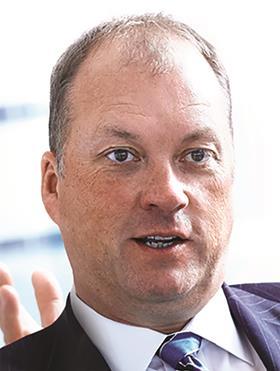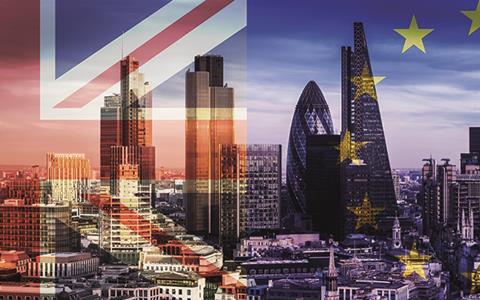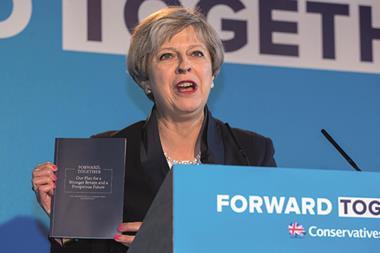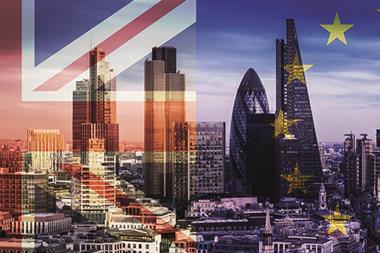In my column in March, I described how I was encouraged by the industry’s dialogue with government and observed that, despite most people’s views that Brexit was bad for the UK, it appeared we were looking to the future and trying to make the best of a challenging situation.

However, despite evidence that ‘Project Fear’ was starting to look like ‘Project Reality’, the government, and particularly Theresa May, adopted an increasingly uncompromising belief that a hard Brexit was in the best interests of the country, without any knowledge of what the terms of the deal might be.
The PM’s all-too-well-known “Brexit means Brexit” was cited as the only option for the government’s mandate based on the referendum result. The FTSE index responded positively, largely on the back of a fall in the pound that made those companies relatively cheaper and those of us in the UK all relatively poorer.
When I was growing up in Canada, my father and I used to do a lot of carpentry. He was meticulous about making sure we got out the tape measure and marked with a pencil exactly where the cut was to be made.
I have never forgotten that as an eager teenager I would be anxious to start cutting and he would always stop me and say: “Son, it is very important that you measure twice as you only get to cut once.”

This is the perfect analogy for what the government should have done before exercising Article 50. Whether one agrees with leave or remain, it had the responsibility to ask one last time - are we sure?
For six weeks, we watched a campaign in which the government was certain the nation would get behind the notion that this was good for the country, return it to power with a huge majority and allow it to show those Europeans we mean business.
Sending a message
Research undertaken by ComRes on behalf of the BPF showed that 71% of sitting MPs believed Brexit would adversely affect the UK’s economic growth, but the government still campaigned on a hard Brexit platform.
When you lose faith in the democratic process, it can be restored through events such as the result of the general election last week. Not only was this not a huge majority, it was not a majority at all, with the Conservatives losing 13 seats and voters picking anyone but their current representative in order to send the message that a hard Brexit is not what the country wants.
My hope is that the government has heard the word of the people
I buy the argument that a large majority would have potentially given the government more strength to negotiate a better deal with Europe. However, I had no confidence that the PM was interested in, or capable of, negotiating a deal that was going to preserve the strength of the UK and address the issues of economic stability, infrastructure investment, regulation, skills and housing that the real estate industry had made clear were critical to our future success.
So what is next? Markets fear uncertainty and although we have seen several large investment transactions in this period, leasing and investment volumes are way off historic averages. By contrast, interest and activity in France, Germany, the US and APAC are strong.
My hope is that the government has heard the word of the people and will take a collaborative approach to find a compromise that sets the UK up for success. Although I wish we had “measured twice and cut once”, there may be an opportunity to get this right. Hopefully it is not too late.






























No comments yet